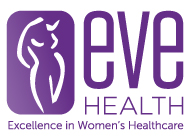There are lots of ways a specialist fertility clinic can help you get pregnant without jumping straight into IVF. In fact, IVF is the last option that doctors will choose for their patients as our aim is to get you pregnant as naturally as possible.
Of course, every patient has a different story and a different reason for why they have sought help and so the right treatment pathway for one person isn’t always the right one for someone else. Your doctor will spend time in your first fertility consultation discussing you (and your partners’) medical and surgical history and may order or review several tests which allow us to guide you into the most appropriate course of treatment. IVF may in fact be your best option of conceiving in the first instance but not everybody is ready to commit to this and we can potentially offer alternatives to you if this is the case.
We always encourage an appropriate lifestyle when trying to fall pregnant, but some fertility issues can be overcome by modifying diet and exercise. For example, polycystic ovarian syndrome (PCOS) symptoms can be improved with weight loss. Other lifestyle factors such as smoking and/or illicit drug taking can also impact fertility. Stress management may also be a contributing factor to not falling pregnant and lifestyle modifications may prove worthwhile.
Occasionally during the investigation process your doctor might find a cause of infertility that is related to uterus (womb) or tubes, that can be fixed with surgery. Treatment following the surgery usually focuses on you trying to conceive for the next few months at home on your own with a follow up consultation if you haven’t fallen pregnant after 3-6 months.
Some patients only require education to know when their fertile window is and undergo natural ovulation monitoring – this is very low intervention and is as easy as a couple of blood tests to check your hormone levels and maybe 1 or 2 internal scans. Combined, these tests help pin point the right time of the month when conception is most likely to occur. During investigations, some patients may discover that they aren’t actually ovulating every month and in these instances, these women may only need interventions to induce ovulation in order to help them fall pregnant. In other situations, there may be a problem with sperm – in fact, this is the case in almost 1 in 2 couples.

Blog post by A/Prof Anusch Yazdani
Comments are closed.
